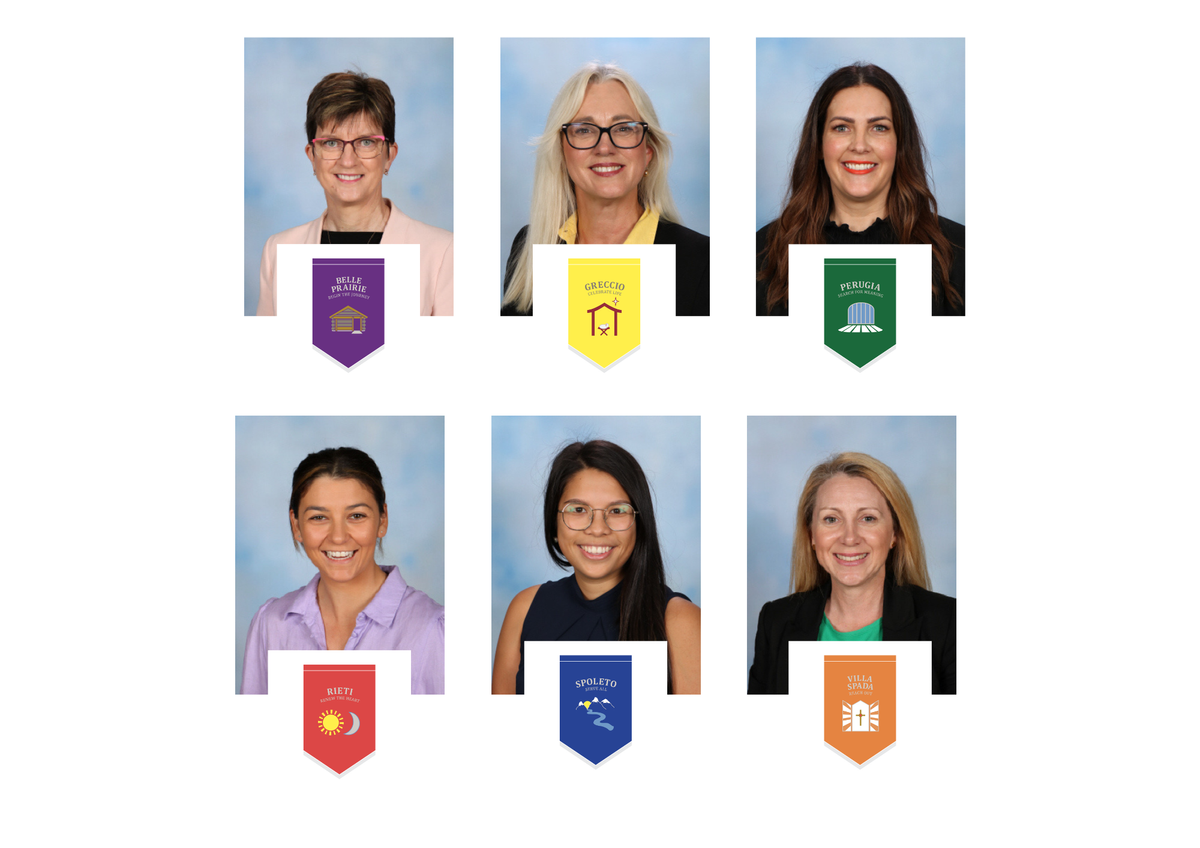Heads of House

Heads of House:
Belle Prairie: Jeni Barlow - BARLJ@staff.mta.qld.edu.au
Greccio: Michelle Licina - LICIM@staff.mta.qld.edu.au
Rieti: Courtney Daniec - DANIC@staff.mta.qld.edu.au
Perugia: Erin Moffat - MOFFE@staff.mta.qld.edu.au
Spoloeto: Chanel Siddall - SIDDC@staff.mta.qld.edu.au
Villa Spada: Sacha Carney - CARNS@staff.mta.qld.edu.au
Embracing Inclusivity: Building Stronger Bonds of Friendship
In a world that thrives on diversity and connection, fostering a sense of inclusivity and empathy within our friendships is of paramount importance. At Mount Alvernia College, we have always strived to cultivate an environment where every young person feels not just welcomed, but truly valued for their unique qualities. Here in the Wellbeing team at Mount Alvernia, we regularly meet with students in our Houses because of friendship issues or group concerns. One of the things that often strikes us is the social capital that exists around group membership. The exclusivity of who is “allowed” and “not allowed” to sit with a particular group at break times, is a concerning phenomenon which does not align with the College’s Franciscan ethos. With this in mind, we thought it timely to explore the significance of people including one another in their friendship circles, and how this practice enriches our school community. But the social benefits of building stronger friendships emanate into benefits in many areas of our lives:
The Power of Inclusive Friendships:
Inclusivity is more than a buzzword; it's a guiding principle that lies at the heart of our educational mission. Our Catholic ethos teaches us to recognise the inherent dignity of every person, and friendships are no exception. Encouraging people to include others in their circles of friendship reflects this core belief – a way to bridge gaps, break down barriers, and forge connections that transcend differences.
Glennon Doyle is an American activist and writer who has coined the concept of the horseshoe, instead of the usual circle, in terms of grouping. Doyle says that we want to teach our kids to sit in horseshoes, not circles, so that our fallback position is always that there is room for someone else. This is exactly what we want Mount Alvernian students to do. We want to raise girls who notice when someone is on their own, whether it is at school or in any social situation and welcome them into the folds.
Empathy in Action:
Including others in our friendships is empathy in action. When students reach out to someone who may be feeling isolated or left out, they are demonstrating compassion and understanding. This practice not only creates a supportive network within our school but also prepares our students to become compassionate and empathetic leaders in their communities.
Nurturing Confidence:
Including others in friendship circles nurtures a sense of belonging and self-confidence. When someone is welcomed into a group, their self-esteem receives a boost, reinforcing their perception of self-worth and potential. As we encourage our students to extend their hand in friendship, we are helping them develop the skills needed to be confident and inclusive individuals in all areas of their lives.
Breaking Stereotypes:
Embracing inclusivity has the power to challenge stereotypes and preconceived notions that may be present in society. As they build friendships with peers from different backgrounds, interests, and experiences, they dismantle barriers and contribute to a more open-minded and accepting world.
We ask then, that you partner with us in our plight to increase inclusivity. Particularly in building a social climate at Mount Alvernia where the notion that one needs ‘permission’ to be treated as a friend, is denounced. We can do better.
So, how can you partner with us? Below are some practical strategies for fostering the Franciscan environment we know lies just beneath the surface:
- Be Approachable: Encourage your child to have an open and approachable attitude towards others. A simple smile or kind word can go a long way in making someone feel welcome.
- Initiate Conversations: Encourage your child to strike up conversations with classmates they may not know well. Sharing experiences and interests can lead to lasting friendships.
- Inclusive Activities: Organise events and activities that promote inclusivity, such as group projects, team sports, or creative workshops that bring students together based on shared interests.
- Discuss empathy: explicitly discuss empathy with your child, provide practical strategies for including others and talk through social scenarios with them to help them navigate the minefield that high school can sometimes be.
By fostering inclusivity, we create a nurturing and empowering environment where our students can thrive emotionally, socially, and academically. Together, we are shaping a generation of young women who will undoubtedly make a positive impact on the world around them.
Yours in Education and Inclusivity,
The Head of House Team.

